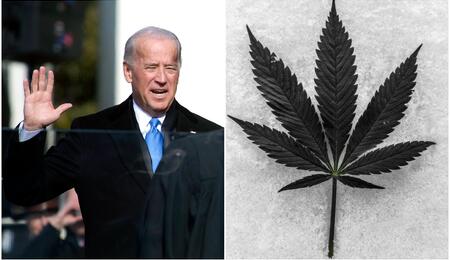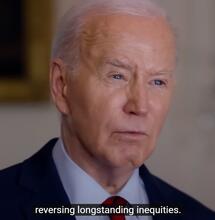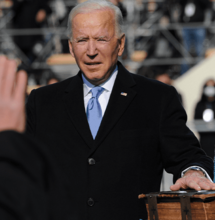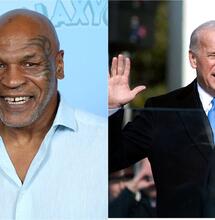Biden's Budget: The Good and The Bad

On Monday, President Joe Biden submitted the budget proposal to Congress for the Fiscal Year 2023. The president has kept a separate provision intact to protect legal medical cannabis programs from federal intervention. That is the good thing. The bad one, as per the budget proposal, he keeps blocking Washington, D.C. from legalizing sales of marijuana, and it's not the first time he is doing so.
Advocates and lawmakers frown upon the fact that the president's last budget had not had removed the DC provision, which was sponsored in Congress by Rep. Andy Harris and has been renewed annually. The rider prevents D.C. from using local tax dollars and implementing a system of legal adult-use sales, although voters approved a legalization ballot measure in 2014 on this matter.
For the Fiscal Year 2022, both the House and Senate appropriators disregarded Biden's request and had any related language to it removed. However, the language ended up included in a bicameral omnibus spending bill introduced by congressional leaders earlier this month, and it will remain in effect until at least the end of September, according to Marijuana Moment.
The president's latest action was met with dismay from Rep. Eleanor Holmes Norton (D-DC), who said in a press release, "I have a hard time reconciling the administration's strong support for D.C. statehood, which would give D.C. not only voting representation in Congress but also full local self-government, with a budget that prohibits D.C. from spending its local funds on recreational marijuana commercialization."
"With Democrats controlling the White House, House and Senate, we have the best opportunity in over a decade to enact a budget that does not contain any anti-home-rule riders," she said.
Looking on the bright side, the 2023 budget proposal retains a separate rider that won't have the Justice Department using its funds to interfere in the enactment of medical cannabis programs across states and territories.
Also, Biden's budget appears to dedicate an estimated $16 million to support industrial hemp production for 2023. The proposal entails ongoing support for longstanding riders protecting state programs from federal intervention.
The House has tried in the past to push even more expansive amendments that would have provided protections for all and any state and territory marijuana programs. However, such amendments have stalled in the Senate and have never been included in final spending legislation submitted to the president.
When Trump signed the same large-scale spending legislation in 2019, he had a statement attached that said he was entitled to ignore the congressionally approved medical cannabis rider, claiming that the administration "will treat this provision consistent with the President's constitutional responsibility to faithfully execute the laws of the United States."
Cannabis advocates were at first positive that Biden would have the problematic rider removed. Still, he kept it in again, although he made an effort to remove separate, D.C.-specific language blocking the city from using its funds to provide abortion services.
Biden's budget approaches D.C. with contradictions, especially as the president has more than once communicated his view that states and territories should be empowered to have their own decisions when it comes to adult-use legalization. However, in the case of the District, he is failing to act on his words.







